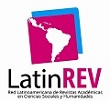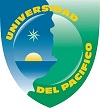Systematization of experience Learning with anchorage In citizen coexistence
DOI:
https://doi.org/10.47366/sabia.v6n1a7Keywords:
Citizen Coexistence, Listening Competition, Learning From ContextsAbstract
This written offers a systematization of teaching experiences that was ordered to identify learning strategies to promote citizen coexistence in the context of conflicts. The experiences take into account both principle-determined approaches and expected outcomes from considerations to the student body as the centre of the learning process. The review of activities carried out in the time of the Coronavirus pandemic is offered as an immediate reference, with the invitation to active listening of musical groups and singers with messages to favour coexistence, as contexts to apply the perspectives of Pierre Bourdieu and Gianni Vattimo in particular, oriented in a global key to remove the veil of prejudices and stereotypes, considering that this was a modular objective.
References
Berger, P. L. y Luckmann, T. (2003). La construcción social de la realidad. Amorrortu Editores, Argentina.
Bhabha, K. k. (2002). La otra pregunta. El estereotipo, la discriminación y el discurso del colonialismo. Capítulo III. En: El lugar de la Cultura. (pp. 91-110). Editorial Mantial. Buenos Aires.
Biggs, John,(2005) Calidad del aprendizaje universitario. (P.64). Narcea
Delors, J. (1994). “Los cuatro pilares de la educación” En: La Educación encierra un tesoro. pp. (pp. 91-103). México: El Correo de la UNESCO.
Department for Education (2017), Effective practice in the delivery and teaching of English and Mathematics to 16-18 year olds. Retrieved from: https://www.gov.uk/government/uploads/system/uploads/attachment_data/file/662470/English_and_Mathematics_to_16-18_year_olds.pdf
Department for Education –DfE- (2018), The behavioural insights team for adult skills and knowledge, Department for Education. (2018), Retention and success in Maths and English. A practitioner Guide to Applying Behavioural Insights.Available at: https://www.gov.uk/government/publications/improving-engagement-and-attainment-in-maths-and-english-courses
Fernández Poncela, A. M. (2011). Prejuicios y Estereotipos. Refranes, chistes y acertijos, reproductores y transgresores. En: Revista de Antropología Experimental. N. 11. Texto 22. (pp. 317-328).
Giddens, A. (2006). Interacción Social y vida cotidiana (capítulo 5). En: Sociología. Alianza Editorial (pp. 143-175).
Kottak, Conrad Phillip (2011). Antropología Cultural. Decimocuarta edición. Universidad de Michigan. Mc Graw Hill. (pp. 3-22).
UNESCO, 2015, Global Citizenship Education: Topics And Learning Objectives, Open Access Repository (http://www.unesco.org/open-access/terms-use-ccbysa-en, 7, place de Fontenoy, 75352 Paris 07 SP, France
UNICEF Canada. (2011). Educating For Global Citizenship: A Practical Guide for Schools in Atlantic Canada. Consultado en septiembre 23, 2019. Ver también Covell, K., and Brian Howe. Empowering Children: Children’s rights education as a pathway to citizenship, Toronto: University of Toronto Press Incorporated, (2005).
Vargas Llosa, M. (2012). Capítulo 1: La sociedad del espectáculo. (pp. 33-59). Editorial Alfaguara.
Vattimo, Gianni, Zygmunt, B.; Turistas y Vagabundos (1999). En: Baumann, Zygmunt. La globalización: consecuencias humanas. FCE, Buenos Aires. pp 103-133.
Zygmunt, B. El desafío ético de la globalización (2003). En: Revista Colombiana de Sociología N. 21 (pp. 231-235).
Downloads
Published
How to Cite
Issue
Section
License
Copyright (c) 2020 Sabia Scientific Journal

This work is licensed under a Creative Commons Attribution-NonCommercial-ShareAlike 4.0 International License.
















